Ireland has dropped six places in the global rankings for most attractive work destinations over the last three years, according to new data from e-recruitment platform IrishJobs.ie.
The Decoding Global Talent, Onsite and Virtual report released today, reveals that Ireland has dropped significantly in its ranking for attractiveness to workers, dropping thirteen places since the first study was undertaken in 2014. Ireland now ranks at number 32, coming down six places from number 26 in 2018 and moving from number 19 in 2014.
Ireland’s ranking as a destination for talent
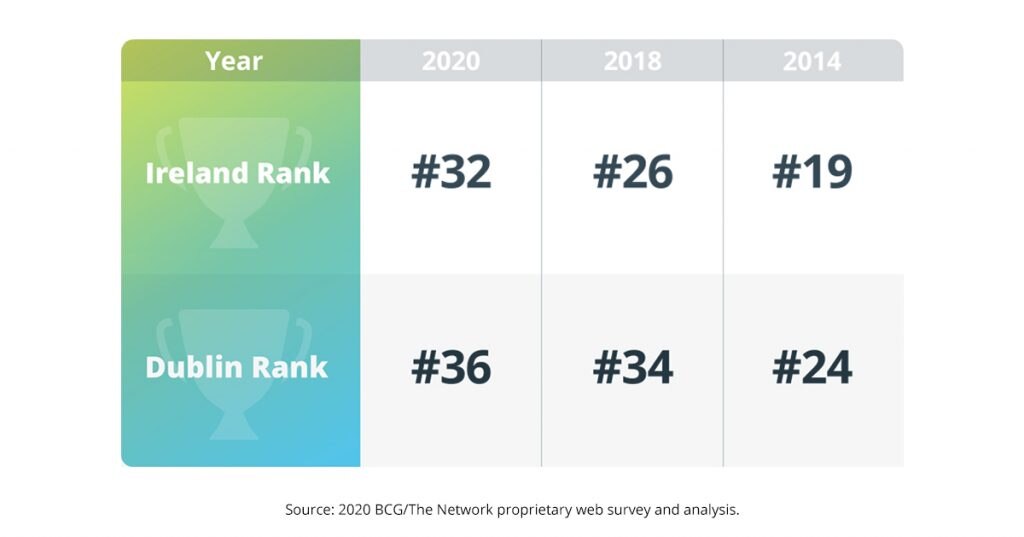
The Decoding Global Talent survey, which was conducted in partnership with Boston Consulting Group and the Network, polled a total of 209,000 workers across 190 countries, including 824 employees in Ireland.
The survey found Canada to be the most desirable country for employment overall, followed by the United States and Australia. London proved to be the most attractive city globally, with Amsterdam and Dubai ranking in second and third positions.
Top ten destination countries for talent
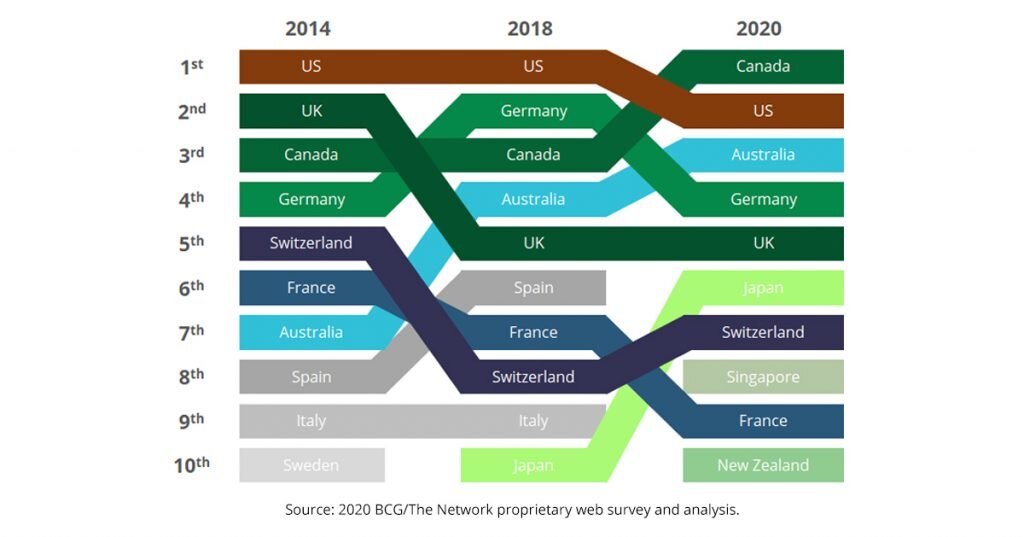
According to the data, employees from the UK were the most open to moving to Ireland in 2020, entering the top ten list for the first time since the 2018 rankings.
Top ten nationalities that want to work in Ireland
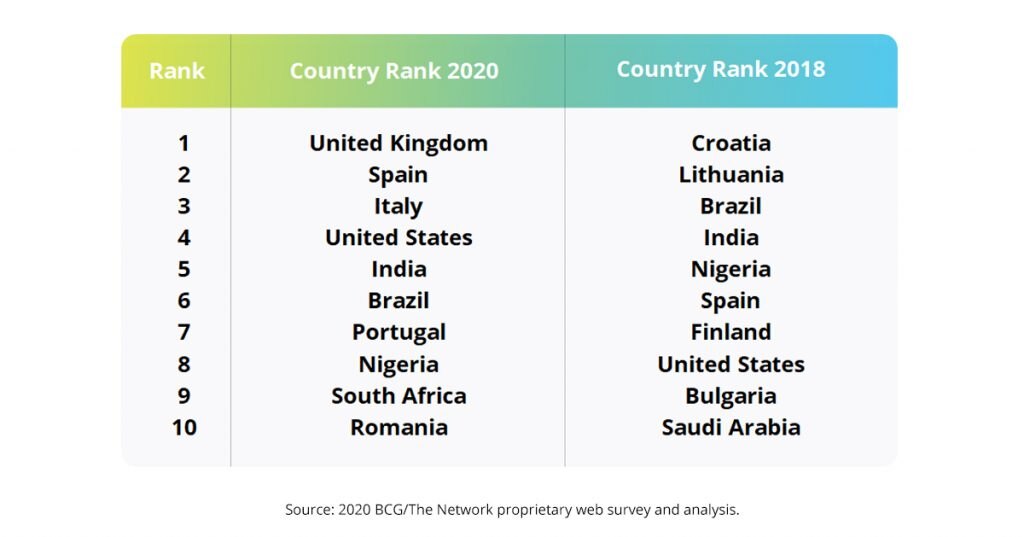
Of those who want to move to Ireland for work, the largest percentage work in engineering and technical roles.
Top ten professions that want to work in Ireland
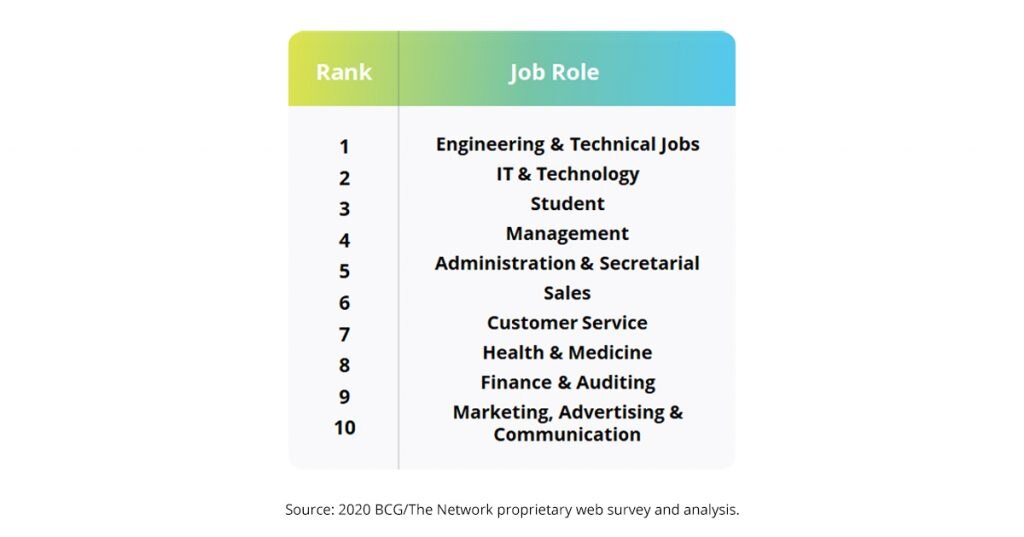
Despite the impact of Covid-19 on working abroad, 47% of Irish employees would still be willing to travel for work according to the 2020 data. This is down, 13% compared to 2018.
The majority of those willing to work abroad are among a younger demographic, with 69% of young people stating that they would travel for work compared to 49% of those classified as highly educated (Master, PhD, Doctorate or equivalent).
Interest in working overseas
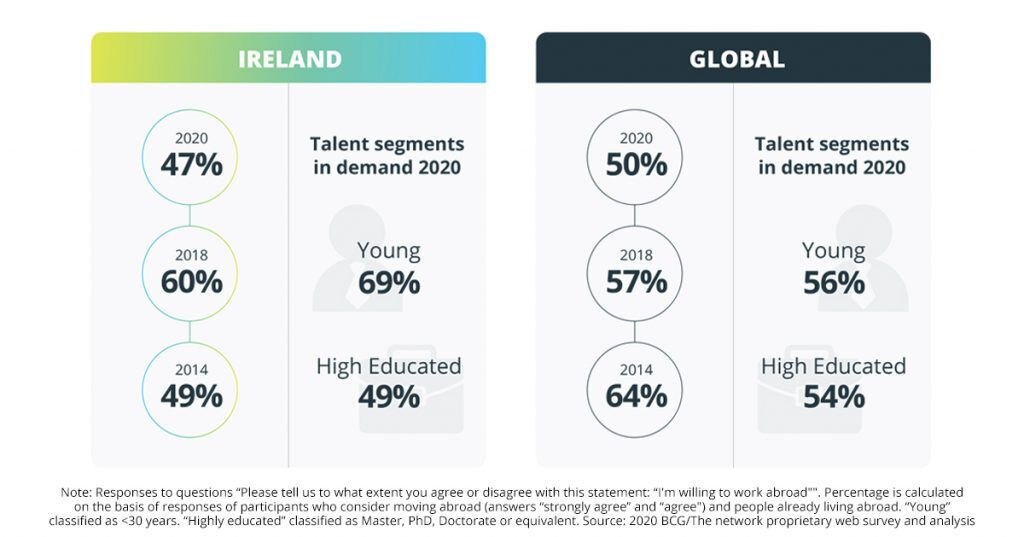
Irish workers are still drawn to the traditional labour markets of the UK, US, Canada, and Australia according to the 2020 data. The shared language and similar culture along with steadily growing labour markets make these countries an easy choice for Irish workers looking to work abroad.
Where Irish people want to work
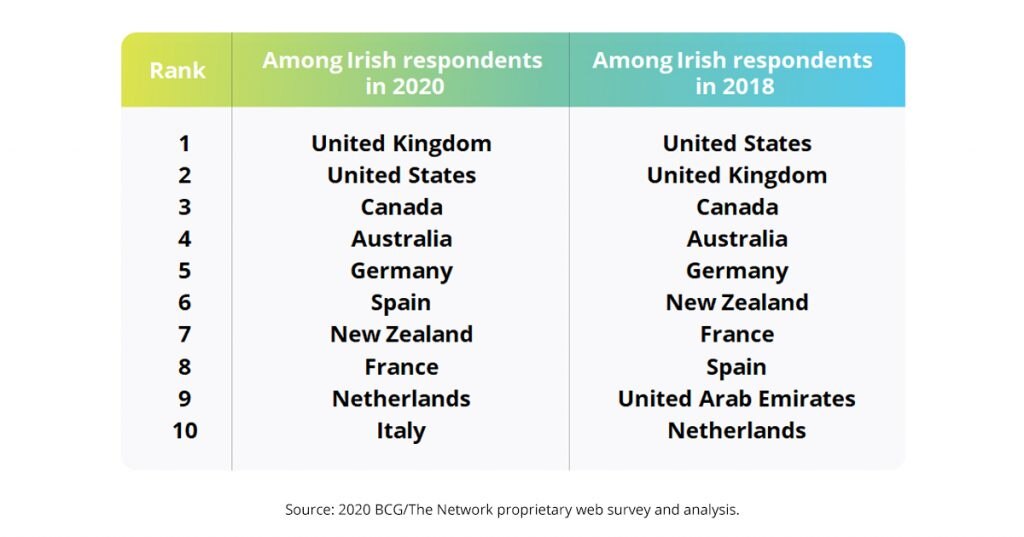
Insight
Commenting on the results Orla Moran, General Manager at IrishJobs.ie said:
“The global labour market has changed drastically in the last year due to Covid-19 impacting on workers’ ability to move to different markets. Despite these challenges, Irish workers still have a keen desire to move abroad for work, possibly out of a hope that travel restrictions will lessen in the not-so-distant future.
“This is particularly evident among young Irish workers, with over 69% willing to move abroad for work. This can probably be at least in part attributed to the disproportionate impact of Covid-19 on younger workers, as demonstrated by the latest unemployment statistics.
“Most significantly what we see from the data is the continued decline in Ireland and Dublin’s attractiveness as a career destination amongst foreign workers.
“While there is no one clear reason for this decline in Ireland’s desirability, Ireland is now viewed by many as one of the most expensive destinations in the EU and one lacking sufficient housing stock.
“For UK professionals, the Irish employment market has become a more attractive destination since 2018, with UK workers now making up the largest cohort of overseas workers looking to move here for employment opportunities. This may be due to the impact Brexit has had on the UK, with many sectors facing uncertainty over equivalency and access to the EU single market. As a result, UK based professionals may see greater opportunity across the water.
Covid-19 opportunities
“International recruitment is not a new practice for employers in Ireland, but the recent shift to remote working makes it an increasingly accessible one. That said, for Irish based employers to capitalize on this opportunity, we must look to address both the real and perceived challenges that Ireland and Dublin have garnered in recent years amongst overseas professionals. By extension, this must be combined with accentuating the positives that come with building a career in one of Europe’s most prosperous economies.”
